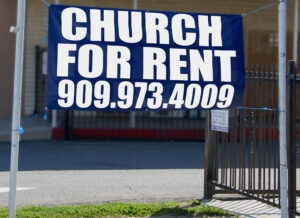
Jeannie Fox is one of NPQ’s cadre of grounded, analytical and committed volunteer newswire writers. Here, she describes the importance of AmeriCorps as part of the experience that informed her lifelong commitment to civil society and a healthy democracy.
President Trump’s proposed budget outline would eliminate the Corporation for National and Community Service, the agency that administers AmeriCorps, Senior Corps and VISTA programs. These programs have provided significant benefit to their participants and to the country, including, indirectly, NPQ.
Is there a direct line between AmeriCorps and Nonprofit Quarterly? In my case, yes! In the late 1990s, I was a few years out of graduate school with a couple of direct service nonprofit jobs under my belt when I accepted an AmeriCorps VISTA opportunity. I was placed at a Habitat for Humanity affiliate in Rapid City, South Dakota. At the time, the organization was so young that I had to work mainly from my home while my Habitat supervisor had an office in a borrowed location the size of a broom closet. In that year of service, I was responsible for creating a board policy manual, a board orientation process, and other forms of infrastructure support to grow and formalize the organization. Fortunately, a good supervisor, AmeriCorps training, and national print resources made this task doable.
I’m happy to report that the Rapid City affiliate founded in 1990 has not one but two “real” offices, has provided permanent homes for over 200 families since 1992, has 20 staff members, and coordinates over 750 volunteers putting in over 20,000 hours a year.
Clearly, the Black Hills community has benefitted greatly from this nonprofit with humble beginnings—and so have I. This early experience taught me the importance of the backbone needs of a healthy nonprofit. Governance, regulatory issues, and capacity building are generally not seen as “sexy” as the program side, but without it, organizations wouldn’t live to do the important work that families and communities rely on. From there, I went on to supervise and create many direct human services programs over the years before using that foundation in the next phase of my career in nonprofit sector public policy, and now teaching. I didn’t know it at the time, but I am now convinced that this single experience in a single year resulted in my dedicating my career to a lifetime of nonprofit service.
Sign up for our free newsletters
Subscribe to NPQ's newsletters to have our top stories delivered directly to your inbox.
By signing up, you agree to our privacy policy and terms of use, and to receive messages from NPQ and our partners.
Well, me and 324,000 others. Since AmeriCorps was formed in 1994, over 540,000 individuals have served, and alumni records show that 60 percent remain in the nonprofit and public sectors. It’s an investment that pays off—for individuals, for communities, and for our country.
Jim McCorkell, once a low-income, first-generation college student himself, was able to use his own experience to dream of a way to help others in similar circumstances. Today, College Possible serves tens of thousands of high school students each year in six states, with their participants being accepted into college at a rate of 98 percent. But Jim couldn’t do it alone, not even with staff. That success rate was built with 190 AmeriCorps members over the years, putting in a combined 322,000 hours of national service.
Jim states, “National service represents a powerful way for the nonprofit sector to get the ‘people power’ to fulfill their missions. At College Possible, by utilizing national service, we are helping low-income students get to college and graduate at four times the rate of their peers. And by harnessing power of service, we do it for a fraction of the cost of most similar efforts. Therefore, national service is both effective and cost efficient.”
For what is a rounding error in the federal budget, the Corporation for National and Community Service leveraged $700 million in private-sector matching funds and engaged untold numbers of community-based organizations to do its work. Zeroing out this viable and remarkable program would be shortsighted, and the losses to communities would be profound and compound upon themselves. And sadly, for the sector, we’d lose the opportunity to develop those starry-eyed, idealistic future nonprofit leaders who got their start, just like I did, from a year of national service.













